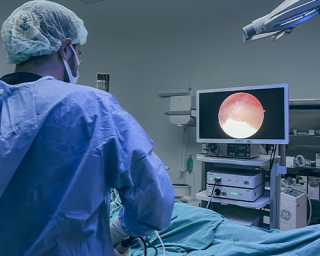
By Mr Dominic Coull
19.12.24
Colorectal surgery
A hernia is a prevalent medical condition where an organ or fatty tissue protrudes through a weak area or tear in the surrounding muscle or connective tissue. Although often harmless, hernias can lead to discomfort and may need medical attention if not addressed. We speak to an experienced colorectal surgeon who delves into the nature of hernias, their causes, symptoms, and the treatment options available.















